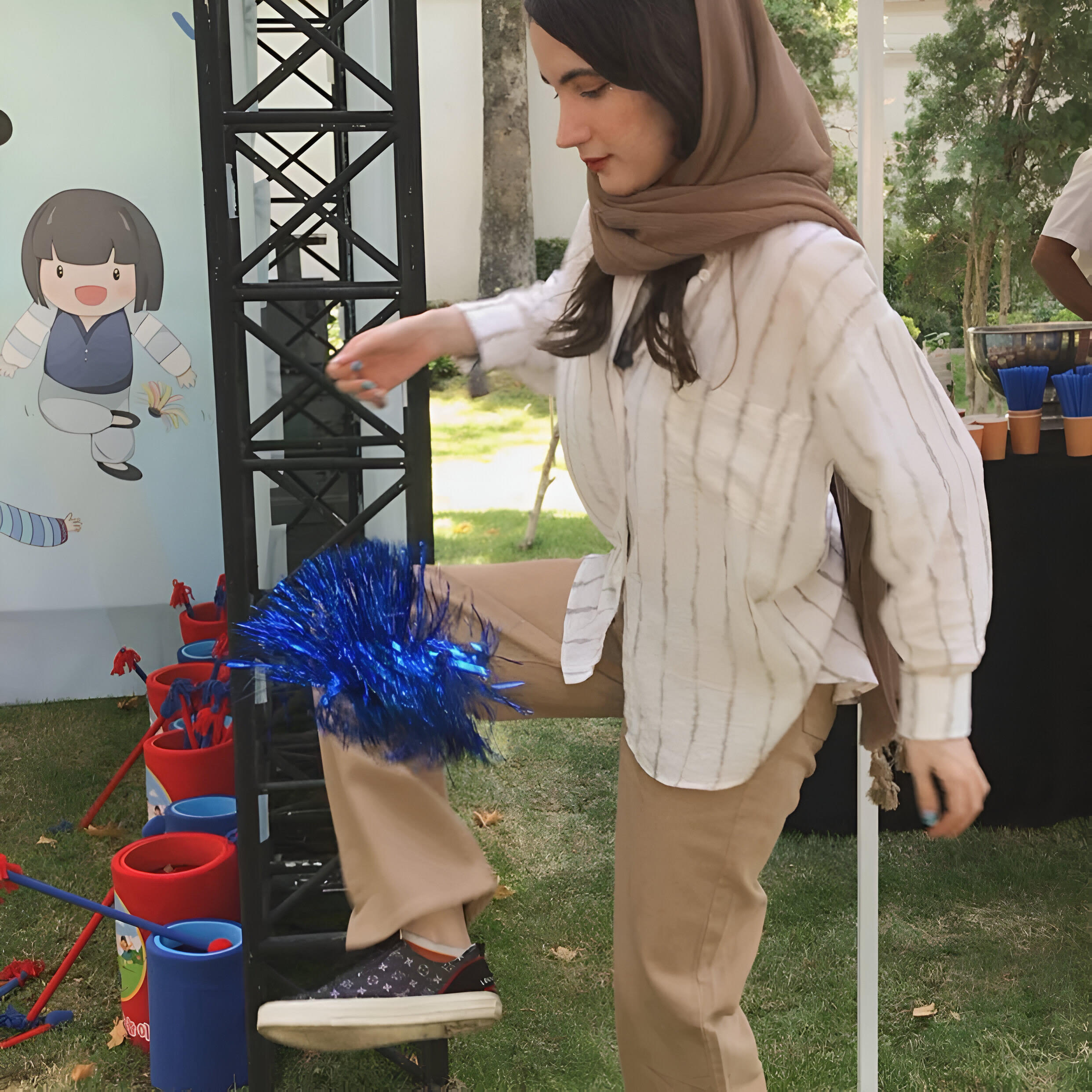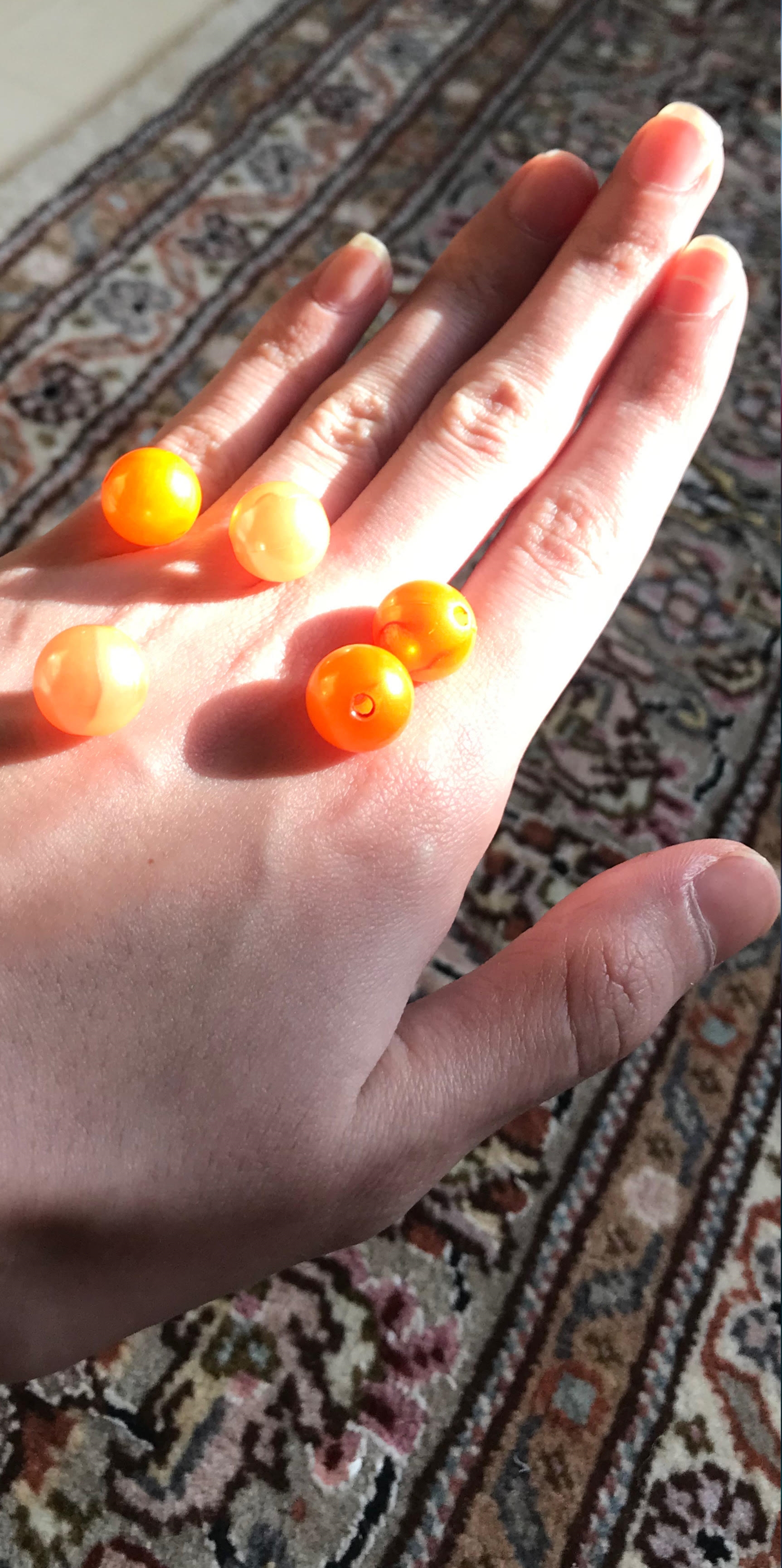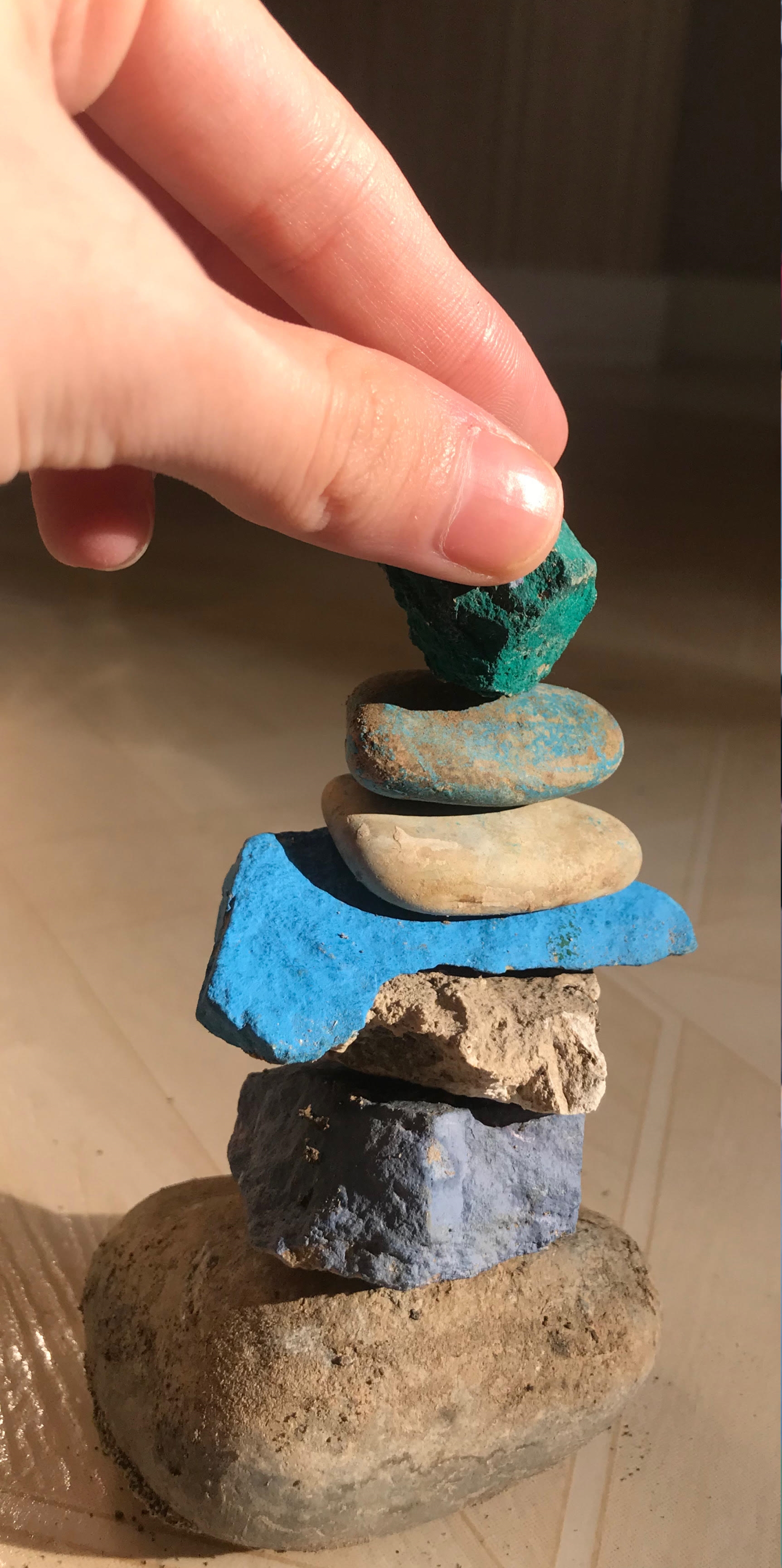- 한국어
- English
- 日本語
- 中文
- العربية
- Español
- Français
- Deutsch
- Pусский
- Tiếng Việt
- Indonesian
By Honorary Reporter Nasim Gerami from Iran
Photos = Nasim Gerami
An intriguing aspect of the second season of the hit Netflix series "Squid Game" is its use of traditional children's games as challenges, several of which are similar to the ones I played as a child in Iran such as paengi chigi (top spinning), gonggi (jacks), biseok chigi (rock throwing or kicking) and Red Light, Green Light.

Jegichagi (shuttlecock kicking)
I played traditional Korean games at cultural events, and after watching "Squid Game," I discovered the similarities between children's games in Korea and Iran. The first game I played was jegichagi (shuttlecock kicking), which appeared in season two of the series.
In paengi chigi, dubbed ferfereh in Iran, the main difference is how the top is spun. In the former, players use a string to spin while in the latter, fingers are used to flick the top.
Gonggi, called ye ghol do ghol in Iran, has players tossing five pieces into the air and picking them up one a time, often following a set sequence of actions like catching the stone with the back of the hand or transferring all stones to the palm at once.

Gonggi (ye ghol do ghol in Iran)
Biseok chigi has players throwing a small stone from a specific distance to knock down a larger stone placed upright on the ground. In the Iranian counterpart haft sang, a favorite game of mine as a child, seven stones are set up in a designated spot and players must knock out all of them using another stone.

Biseok chigi (haft sang in Iran)
*This article is written by a Korea.net Honorary Reporter. Our group of Honorary Reporters are from all around the world, and they share with Korea.net their love and passion for all things Korean.
